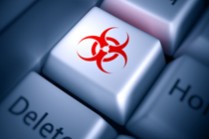Biological Project Registration
Biological Project Registration

The Committee on Microbiological Safety (COMS) is the Institutional Biosafety Committee for Harvard University.
COMS regulated materials, as defined by COMS Policy, require committee approval before receipt, storage, and use.
You must receive COMS approval before the Institutional Animal Care and Use Committee (IACUC) will grant approval for animal research involving these agents.
Using human embryonic stem cells requires COMS registration and approval by the Embryonic Stem Cell Research Oversight Committee (ESCRO). You must also contact your school's Institutional Review Board (IRB) if your research includes human studies.
Submit registration forms to your Biosafety Officer (BSO). BSOs conduct risk assessments for proposed work and submit forms to COMS with their containment level recommendations.
Contact biosafety@harvard.edu to register a new COMS, amend an existing registration, or learn more about COMS requirements and approval timelines.
Other committees and offices that oversee biological project registration include:
- Embryonic stem cell research:
- Harvard All-Campuses ESCRO
- Human subject research:
- Faculty of Arts and Sciences (FAS) IRB Committee on the Use of Human Subjects in Research
- Longwood Medical Area Office of Human Research Administration
- IACUC:
- FAS IACUC Standing Committee on the Use of Animals in Research and Teaching
- Harvard Medical School Office of the IACUC serving the Harvard Medical Area Standing Committee on Animals (Harvard Medical School, Harvard School of Dental Medicine, and Harvard School of Public Health IACUC)
Department Contact
Did You Know?
There are safer options to using standard hypodermic needles and scalpels in research. Safer needle devices include retractable and re-sheathing needles, re-sheathing scalpels, needles that can be blunted after use, and many more. Consider if a safer sharp will work for your experiment or if a blunt needle can be substituted. For more information on safer sharps, visit Occupational Safety and Health Administration (OSHA): Healthcare Wide Hazards Needlestick/Sharps Injuries.

